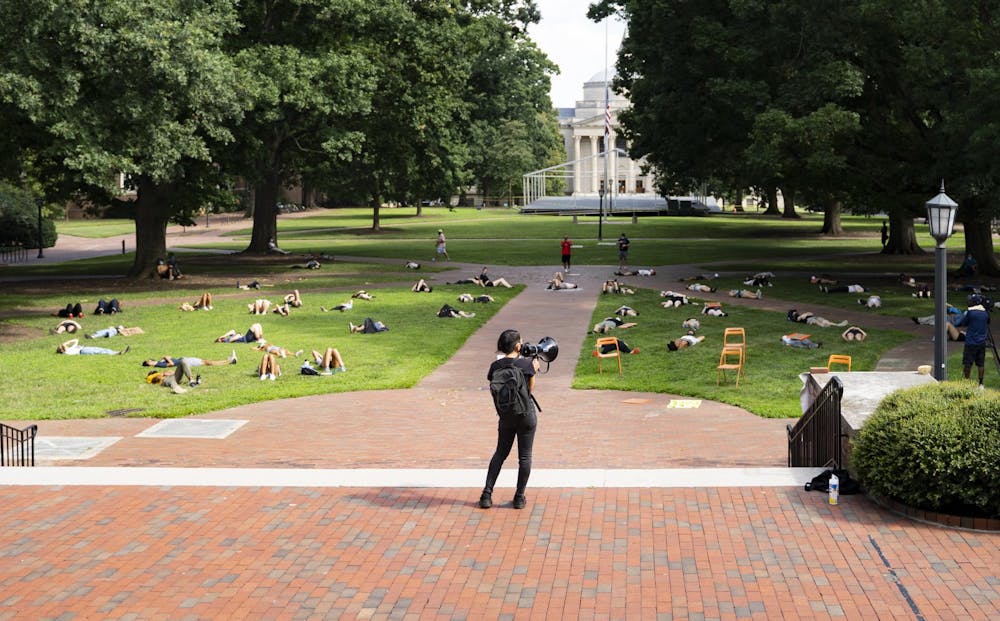As students arrived back at Chapel Hill for another semester, members of the campus community called out the University for its decision to reopen campus this fall.
A group of students, faculty, graduate workers and campus workers gathered at Polk Place on Wednesday and participated in a die-in — the latest in a series of protests, petitions and demands for the University to roll back campus reopening.
After a moment of silence for those who had died of COVID-19, participants laid down on the quad for more than 30 minutes. This was to show symbolically that the University will be responsible when students, workers, faculty or community members get sick, said Lindsay Ayling, a history graduate student and one of the organizers of event.
“I think UNC has been trying to place distance between itself and the outcome of its reopening fall plan, which will be suffering and death,” she said.
Ayling said the University is preparing to blame students for an outbreak rather than taking responsibility for the fact that structural policies and the architecture of campus will lend to a spread of the virus.
“Campus administrators need to acknowledge that classrooms are poorly ventilated,” Ayling said. “Dining halls are poorly ventilated. People are going to be indoors. So, while individuals can take action, it's going to be the institution primarily that will be responsible for harm. Because they’re creating the conditions that will lead to the spread of the virus, and any more so than one individual person, UNC-Chapel Hill is going to be a superspreader.”
Some speakers shared stories about their personal experiences suffering from COVID-19 and the inevitability of a campus outbreak. Others, like grounds technician David Brannigan, criticized the administration’s decision-making process regarding reopening.
He said they ignored key constituencies who should have been consulted, citing a July letter from officials in UNC-Chapel Hill's Office for Diversity and Inclusion asking to be more involved in the fall reopening planning.
“They even ignored their own diversity and inclusion committee, who had to write to the chancellor and say that they are not included on the COVID Task Force,” Brannigan said. “Despite the fact that COVID is affecting Black people and ethnic minorities at much larger rates.”




